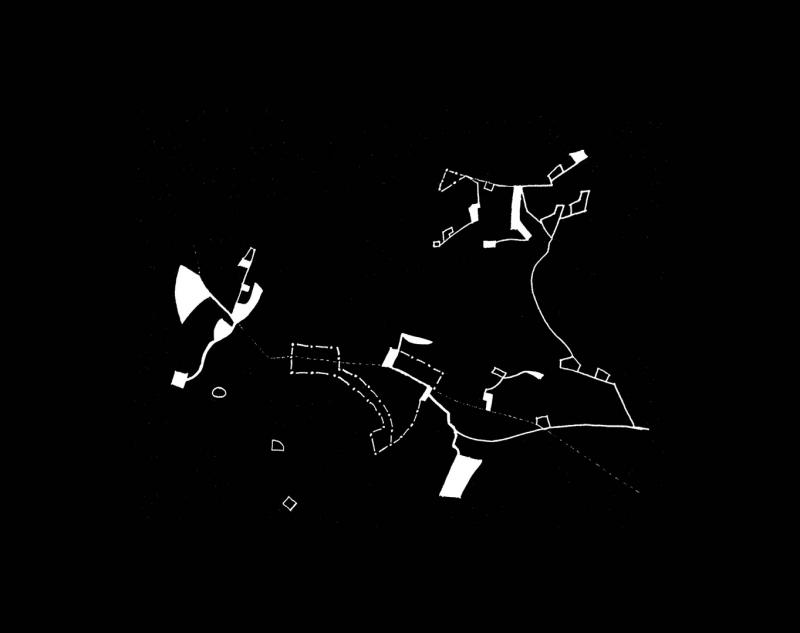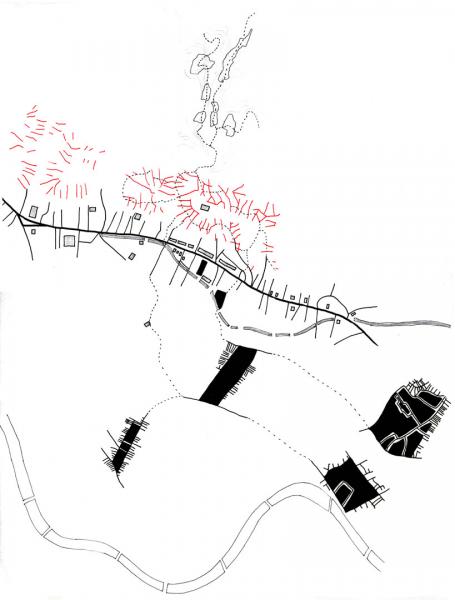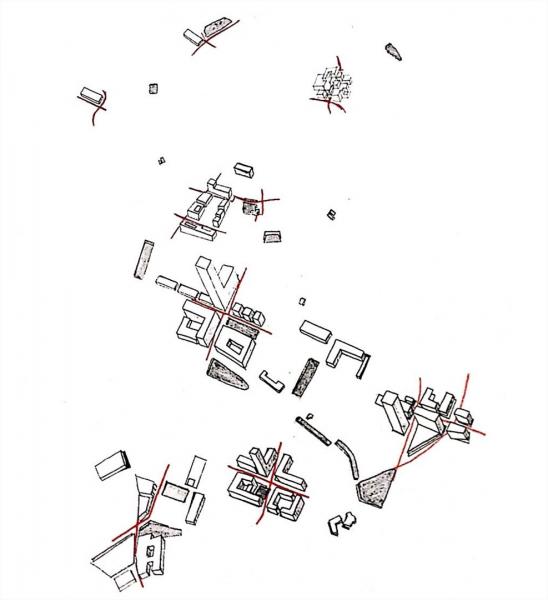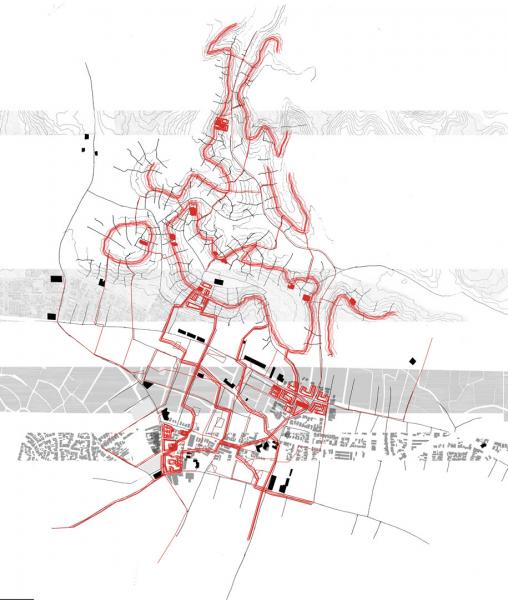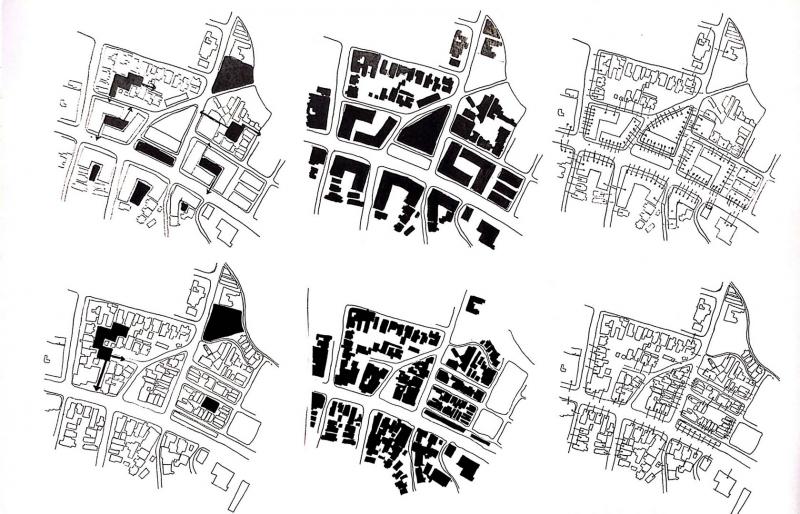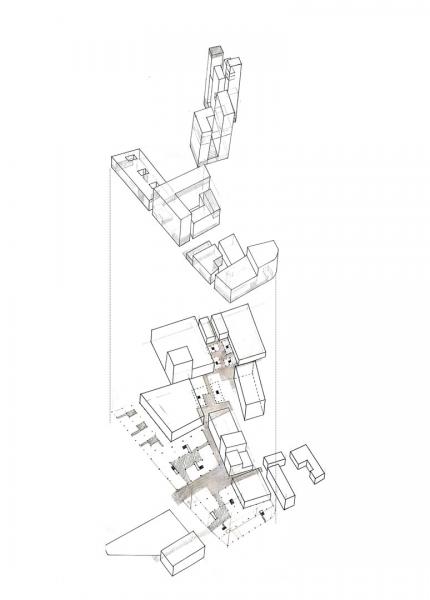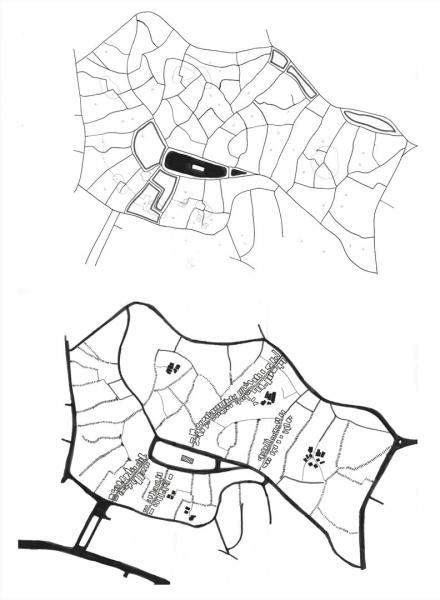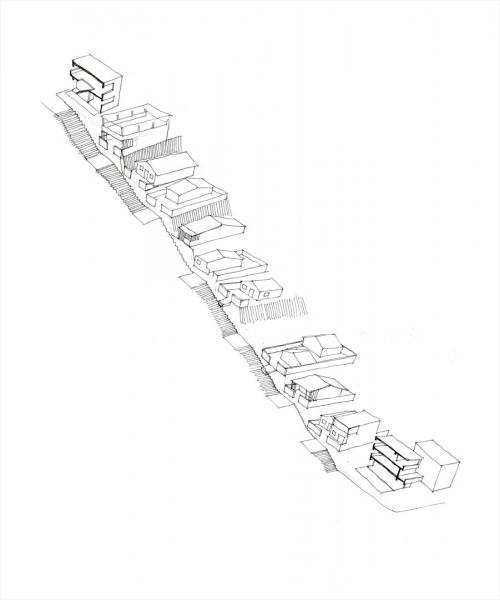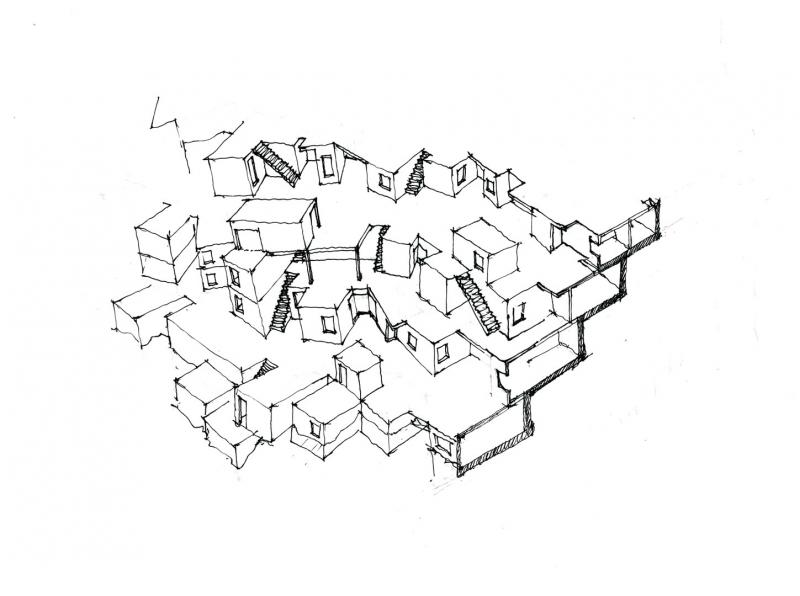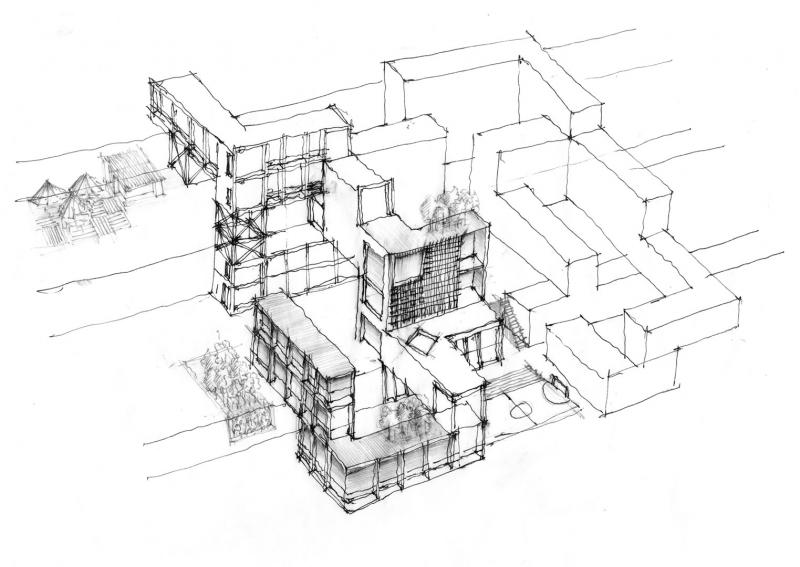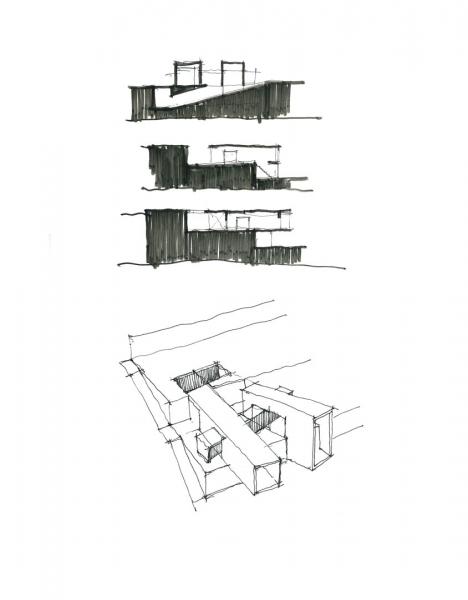Recife Design Workshop: Networking Localised Strategies
Tutors: Hugo Hinsley, Elad Eisenstein.
The aim is to enhance existing social and economic networks through a spatially and functionally interlinked series of localized interventions. New systems of permeable urban fabric allow for a more differentiated sequence of private and public urban conditions. The formation of a high quality public realm will help to reduce social and physical borders, which currently limit potential. Adding spaces for institutional functions will act as a catalyst for commercial and residential development, and help to improve education and training facilities in the area. New institution and improved public realm strengthen the networks on both sides of the Avenida Norte. New housing for all three levels of the Minha Casa Minha Vida programme is integrated with existing built fabric.
Urban Mobility is interpreted as a multi-scalar system of movement, which incorporates both regional transportation networks as well as local pedestrian walkability. The Avenida already acts as a vital regional connector, and its role will be further emphasised through the planned introduction of a rail-based public transportation system. The aim is to focus on a localized understanding of mobility, addressing areas which are independent of, or run parallel to, the Avenida Norte. Networks and centralities are formed, which spread across the territory and address different topographical and functional conditions, linking with existing centralities through differentiated sequences of spaces.
Recife Design Workshop: Social Housing and Urban Mobility
This intensive design workshop in Recife, in collaboration with the Federal University of Pernambuco, explored a study area in relation to the potential of social housing and urban mobility in urban development.
Current mass housing projects and investments in public transport in Recife offer opportunities to rethink the role of mobility and housing, strengthening spatial relations between dwelling, urban infrastructure, production and services. The aim of linking different federal and municipal tools for public investment, whilst spatially rethinking infrastructural investment, forms the basis for the four spatial explorations in the territory on both sides of the Avenida Norte, a main transport route.
We formed four groups, mixing students and teachers from both institutions, for ten days of intensive work. Each group critically interpreted the urban challenges and developed spatial responses to test strategies for development. The proposals were presented for discussion in a major debate with representatives of the existing citizens’ groups, architects and planners, officials from the City, and officials from the Federal Ministry for Cities.
We will produce a second publication from this work, following the book: “Housing as Urbanism” published from last year’s Recife design workshop.

